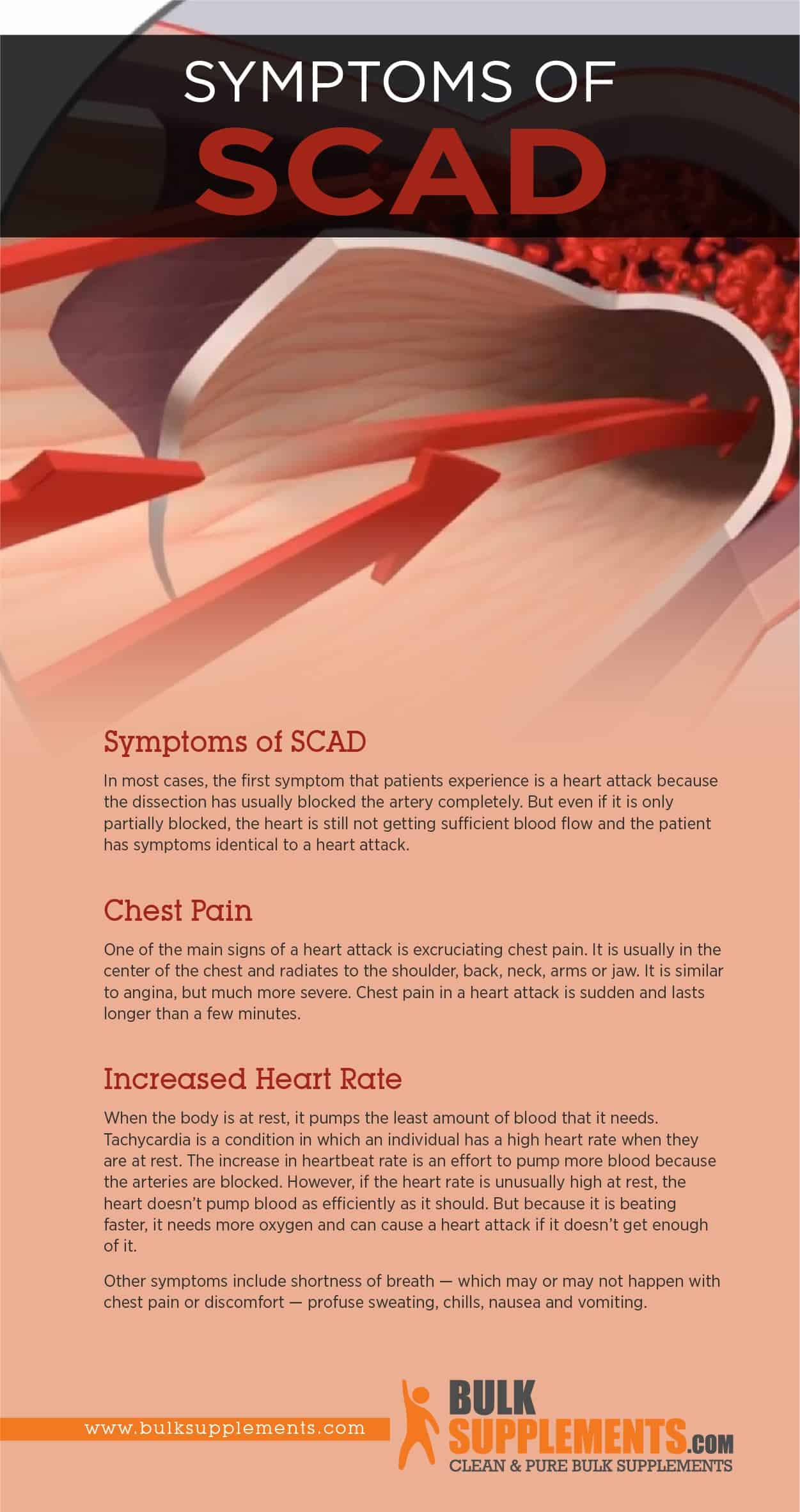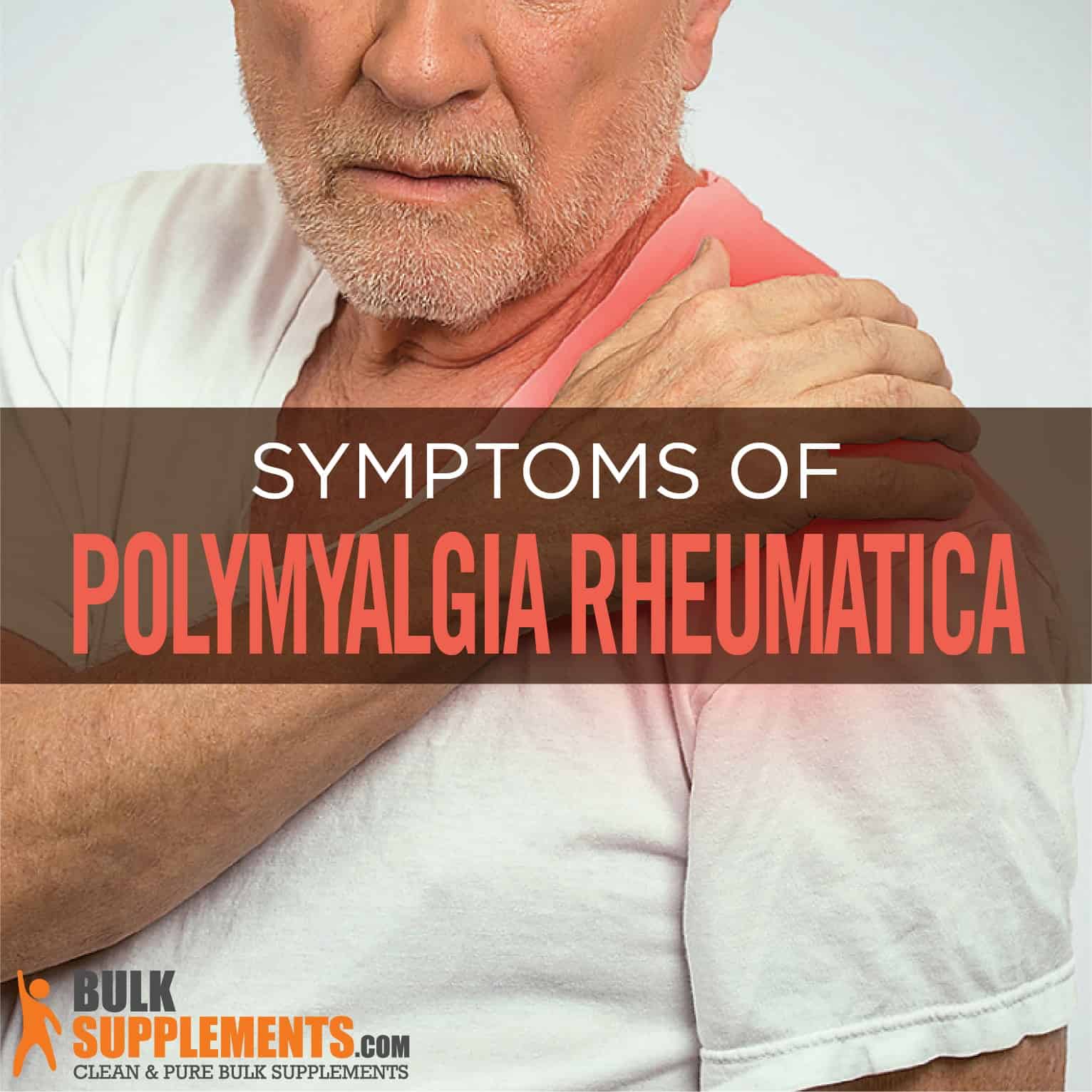Spontaneous Coronary or Carotid Artery Dissection (SCAD): Causes, Symptoms & Treatment
by James Denlinger Digital Marketing StrategistWhat is SCAD?
Spontaneous (coronary or carotid) artery dissection (SCAD) is a very rare, emergency condition caused by a tear in the coronary or carotid artery wall. This reduces or stops blood flow to the heart, which results in severe chest pain or a heart attack. It is also related to several other conditions, including pregnancy and systemic inflammatory conditions. But it is most commonly associated with fibromuscular dysplasia (FMD), a condition characterized by abnormal cellular growth in the arteries.
SCAD most commonly affects women in their 40s and 50s, and what makes this condition all the more sudden is the fact that it mainly occurs in people who are generally healthy. Most people affected do not show any of the risk factors or warning signs for heart disease. For example, there are low quantities of cardiac enzymes in the blood normally, but the body produces more of them during a heart attack. If a patient has elevated cardiac enzymes but has not had a heart attack, it could be a warning sign for SCAD. It’s important to diagnose and treat SCAD as soon as possible because it could result in a heart attack if blood flow is blocked completely.
Causes of SCAD
SCAD is caused by arterial tears. There are three walls that make up the artery and when one of them is disrupted, it allows blood to pass through. When the blood pools in the space between the artery walls, it adds pressure and allows the tear to grow even larger. The blood remains trapped and solidifies to form a hematoma, or a blood clot, and the artery narrows and becomes blocked, either partially or completely. Partial blockage causes chest pain and weakens the heart muscles and complete blockage can cause a myocardial infarction — or a heart attack — if blood is unable to get through to the heart muscles.
However, a heart attack from SCAD is completely different than a heart attack from atherosclerosis, which is another more common cause of heart attacks. Atherosclerosis is a condition in which the arteries narrow from plaque buildup. SCAD occurs without signs of plaque buildup or any other risk factors for heart attack, such as diabetes or high blood pressure.
Risk Factors for SCAD
Doctors do not know exactly what causes arterial tears, but they have identified several risk factors.
Gender
SCAD typically impacts women. One study analyzed a sample size of 224 cases, in which 71.9 percent were women and only 28.1 percent were men, making gender one of the main risk factors for SCAD.
Pregnancy
Women who are pregnant or postpartum are also at risk. Researchers hypothesize that the hormonal and hemodynamic changes in pregnancy may contribute to SCAD.
Fibromuscular Dysplasia (FMD)
In fibromuscular dysplasia, the cells in the artery walls grow abnormally and the artery walls either grow or narrow. SCAD is commonly a manifestation of FMD. Usually FMD affects the carotid arteries that connect the brain to the heart, but sometimes it affects the coronary arteries.
Underlying Conditions
Autopsy reports have identified inflammation in SCAD cases and link the condition to systemic inflammatory diseases, such as lupus, Crohn’s disease, rheumatoid arthritis and celiac disease. Although it is rare, another study associated SCAD with connective tissue disorders, such as Marfan syndrome.
Other risk factors include cocaine use and emotional or physical stress. One study stated that cocaine can potentially cause SCAD. It increases blood pressure and causes constriction in the blood vessels, putting pressure on the artery walls that can result in arterial tears. Another study stated that intense emotional or extreme physical stress and exercise can trigger SCAD.
Symptoms of SCAD
In most cases, the first symptom that patients experience is a heart attack because the dissection has usually blocked the artery completely. But even if it is only partially blocked, the heart is still not getting sufficient blood flow and the patient has symptoms identical to a heart attack.
Chest Pain
One of the main signs of a heart attack is excruciating chest pain. It is usually in the center of the chest and radiates to the shoulder, back, neck, arms or jaw. It is similar to angina, but much more severe. Chest pain in a heart attack is sudden and lasts longer than a few minutes.
Increased Heart Rate
When the body is at rest, it pumps the least amount of blood that it needs. Tachycardia is a condition in which an individual has a high heart rate when they are at rest. The increase in heartbeat rate is an effort to pump more blood because the arteries are blocked. However, if the heart rate is unusually high at rest, the heart doesn’t pump blood as efficiently as it should. But because it is beating faster, it needs more oxygen and can cause a heart attack if it doesn’t get enough of it.
Other symptoms include shortness of breath — which may or may not happen with chest pain or discomfort — profuse sweating, chills, nausea and vomiting.
 PIN IT
PIN ITDiagnosing SCAD
To test for SCAD, a doctor will perform cardiac catheterization to test any problems with the heart and coronary arteries. They will insert a tube into the groin and thread it into the arteries to take an X-ray.
SCAD Treatment
Treatment depends on the severity of the case, whether it causes chest pain or results in a heart attack. The patient may benefit from medications, such as blood thinners or beta-blockers, or they may need more advanced procedures.
Stent Placement
This treatment uses a small metal coil or tube to hold the narrow or blocked artery open. The stent can be positioned in the coronary or carotid arteries in the heart or the neck, as well as the peripheral arteries in the arms and legs.
Bypass Surgery
This is one of the most common heart procedures. In bypass surgery, the surgeon removes a vein in the chest, arms or leg to bypass the blocked coronary artery, allowing blood to flow to the heart.
Typically, recovery time for a stent placement is a few days to a week and at least six weeks after hospital discharge for a bypass surgery. Even after treatment, there is a chance of recurrence, especially in patients with FMD. But a second dissection can occur months or years after the first. There is no way to determine if someone will have a recurrence and no way to prevent it.
Supplements for Heart Health
Although there is no way to predict or prevent SCAD, supplements can help promote heart health.
Coenzyme Q10 (COQ10) Powder
COQ10 is an antioxidant, meaning it destroys free radicals that cause damage in the body. It produces energy and maintains immune system health. Research has linked heart failure with COQ10 deficiency. The recommended dosage is 50 to 200 mg, depending on specific health conditions.
Omega 3-6-9 Softgels
Fats are an essential component of the cell membrane. Omega-3-6-9 fatty acids improve heart health and reduce blood pressure. Take three soft gels once or twice per day.
Taurine Powder
Known for its antioxidant properties, taurine improves metabolism and regulates blood pressure and cholesterol. Take 500 mg twice a day as a dietary supplement.
Hesperidin Powder
In combination with other compounds, hesperidin helps support circulation and treats hemorrhoids. Hesperidin is found in citrus fruits. Take 500 mg once or twice per day with food and water.
Hawthorn Berry Extract Powder
For thousands of years, this herb has been used to treat diseases relating to the heart and blood vessels. Hawthorn berry helps maintain blood pressure, cholesterol levels and atherosclerosis. The recommended dosage is 1,200 mg once or twice daily.
Nattokinase Powder
Extracted from a food called natto, which has origins in Japan, nattokinase is a protein-digesting enzyme. It can help prevent heart disease and angina and manage high blood pressure. The recommended serving size is 100 mg once, twice or three times per day.
Tart Cherry Extract Powder
Apart from strengthening the immune system, tart cherry extract is very effective in managing a number of other conditions, such as osteoarthritis, dementia and insomnia. It also reduces blood pressure. For the full benefits of tart cherry extract, take 2,500 mg once a day.
Artichoke Extract Powder
Research concludes that artichoke extract may help to regulate cholesterol and prevent heart disease. Artichokes are rich in antioxidants that fight free radicals. The recommended serving size is 700 mg daily.
The Bottom Line
Spontaneous coronary or carotid artery dissection (SCAD) is a rare, but very serious condition that results from a tear in the artery wall. It reduces or completely stops blood flow to the heart. Most patients who suffer from SCAD are generally healthy women in their 40s or 50s who do not show any risk factors for heart disease.
Researchers have not identified an exact cause for SCAD, but there are several risk factors including pregnancy hormones, systemic inflammatory conditions, connective tissue disorders and fibromuscular dysplasia (FMD). Treatment options for SCAD include medications, bypass surgery and stent placement. Although there is no way to prevent the condition, supplements can help promote overall heart health.
Sponsor Ads
Created on Mar 18th 2020 17:16. Viewed 231 times.




